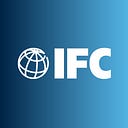Funding for financial inclusion reached a historic high of $42 billion in 2017, and investors continue to seek opportunities in digital innovation and inclusive growth. While opportunities have increased, so have the myriad and pace of risks for investors. Hence, broader investor awareness is critical to catalyze investments in a responsible way. IFC is organizing an investor forum that will bring together leading investors to participate in deep dive sessions focusing on “Responsible Finance for Digital Inclusion: Investing for Impact initiative.”
“This discussion is happening at a critical juncture for the industry, to revisit how we provide finance for all, including for the persistently underserved, using technology as a solution, along with responsible investments to help mitigate digital finance consumer risks,” IFC Director for Strategy Aisha Williams said during the opening.
This can be addressed through the Investor Guidelines that were conceptualized by Goodwell Investments, Mobisol and IFC in Berlin, Germany in 2017. By 2018, an Investor Working Group with over 40 members co-developed the Investor Guidelines to accelerate investments that create value-added benefits for digital finance customers and broader digital ecosystems. During the IFC organized meeting which took place in Washington DC, USA on April 04, 2019, new signatories to the Investor Guidelines were welcomed, such as Victory Park Capital and the Market Lending Association (MLA).
“I am proud that our Association continues to support the highest voluntary conduct standards in digital finance,” said Nathaniel Hoopes, Executive Director of the MLA. “In California, we’ve seen how voluntary industry standards actually play a crucial role in seeding sound public policy ideas in the area of disclosure. Here, the MLA is signing onto investment guidelines that seek to ensure that investors — both large and small — are evaluating digital financial services companies through a lens of both responsibility and innovation.”
The Investor Guidelines focus on embedding consumer protection into digital financial services and incorporating IFC’s due diligence practices for digital users and customers into investments. The goal of the signatories is to catalyze investments in responsible digital innovation and work with industry and technology leaders as partners to fine-tune evolving solutions and share emerging evidence and business models for inclusive growth.
Leveraging technology and digital innovation is key to improving access beyond traditional financial sector providers. Newer entrants are rapidly disrupting the landscape, making it easier than before to expand access to financial services to hard-to-reach populations and small businesses. While opportunities have increased, so have risks for digital financial services, particularly for lower-income customers in rural, nascent, fragile, and conflict-affected markets.
The Guidelines cover investors, investees, innovators, and the fintech and broader digital financial services industry. They look at the risks digital consumers face, how those risks drive businesses, and the development of digital economies.
The Guidelines are aligned with IFC’s broader Investing for Impact: Operating Principles for Impact Management launched at the Annual Meetings in Bali in 2018. The Principles will continue to be available for investors to become signatories, with the next group of signatories set to be announced at the 10th annual Responsible Finance Forum (RFF) in Amsterdam in October 2019.
Responsible finance has been an important topic since the 2008 financial crisis, and a cornerstone of the World Bank Group’s Universal Financial Access goals. It also contributes to the United Nations’ Sustainable Development Goals and remains a high-level priority of the G20 Global Partnership for Financial Inclusion (GPFI).
IFC has helped to facilitate the RFF for more than a decade, alongside the inaugural partners, German Federal Ministry for Economic Cooperation and Development (BMZ) and the Netherlands Ministry of Foreign Affairs — funders from the beginning — GIZ and the Consultative Group to Assist the Poor (CGAP).
